Elbow, Wrist, Hand Exam
For a problem focused exam of the elbow:
For a problem focused exam of the hand and wrist:
-
- If you suspect DeQuervain’s tenosynovitis, perform Finkelstein’s test
- If you suspect Carpal Tunnel Syndrome, perform Phalen’s and Tinel’s test
Key landmarks & structures
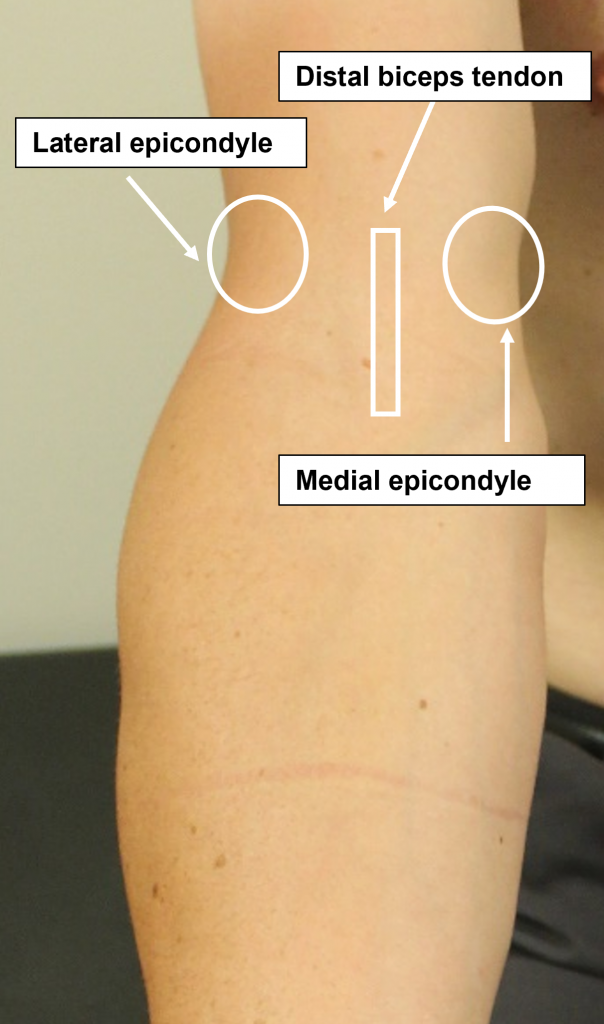 |
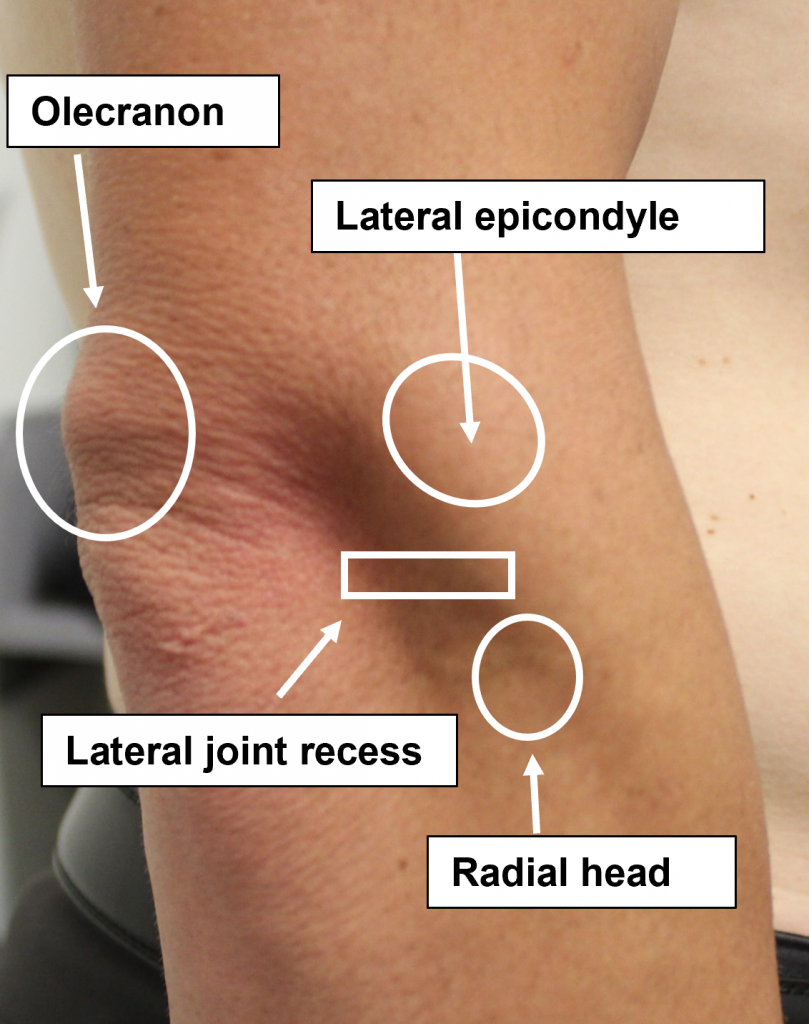 |
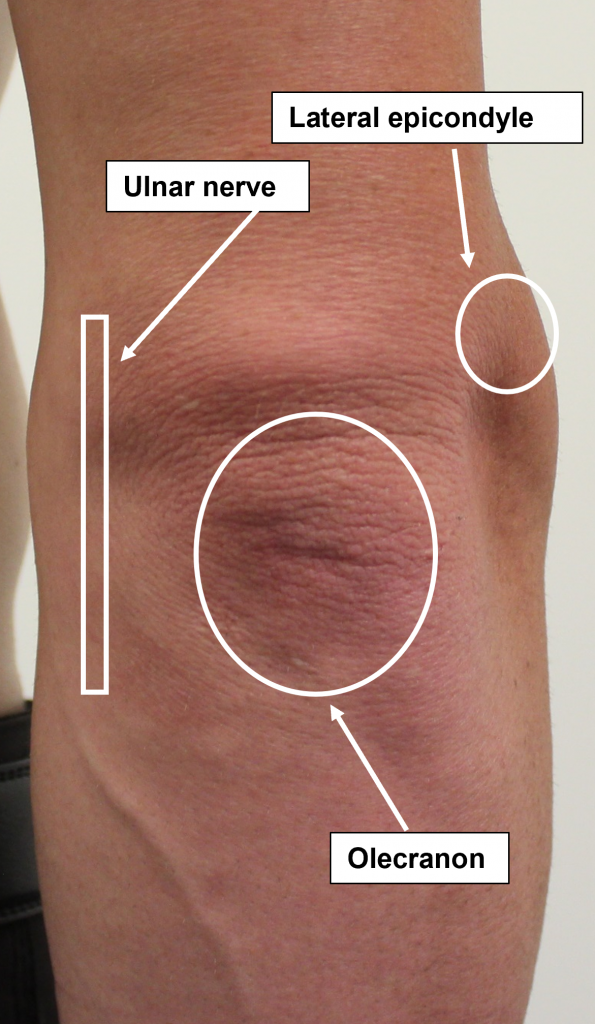 |
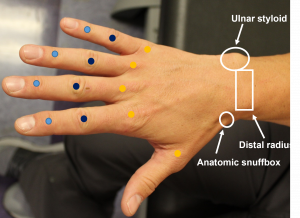 |
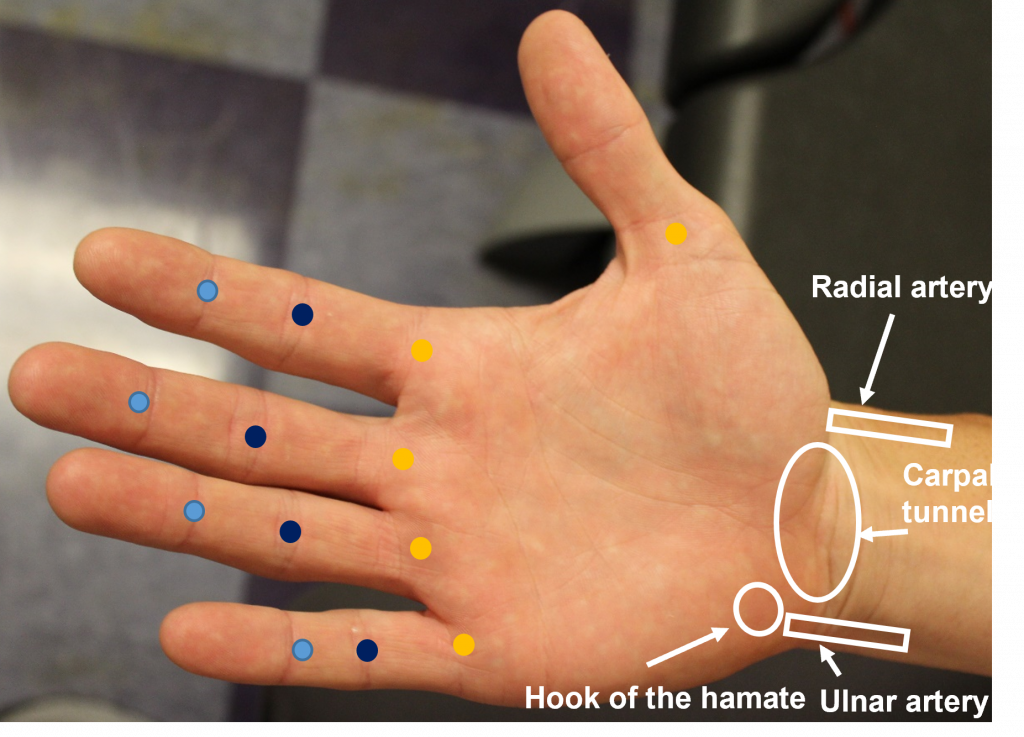
Right wrist and hand– Palmar view |
![]() Distal interphalangeal joints
Distal interphalangeal joints
![]() Proximal interphalangeal joints
Proximal interphalangeal joints
![]() Metacarpophanlageal joints
Metacarpophanlageal joints
Inspection
Inspect the structures above, noting:
– Swelling
– Erythema
– Ecchymoses
– Alignment
– Muscle bulk
– Radial or ulnar deviation
Palpation
Palpate the structures above, noting and swelling or tenderness to palpation.
Range of motion
Normal ROM of the elbow joint is:
- Flexion: 140°
- Extension: 0°
- Supination: 80°
- Pronation: 80°
Normal ROM of the wrist:
- Flexion: 75°
- Extension: 75°
- Ulnar deviation: 40°
- Radial deviation: 20°
Normal ROM of the hand:
- DIP/PIP Flexion: 90 °
- DIP/PIP Extension: 0°
- MCP Flexion: 90°
- MCP Extension: 5 to -10 °
Strength testing
Stability and Special tests
Medial and ulnar collateral ligaments of the elbow
Stability testing about the elbow is assessed with the patient seated, at both zero and thirty degrees.
- Ulnar (medial) collateral ligament: Place valgus stress on the elbow
- Radial (lateral) collateral ligament: Place varus stress on the elbow
Make note of pain with valgus or varus stress as well as of laxity felt on exam. Don’t forget to compare to the asymptomatic side!
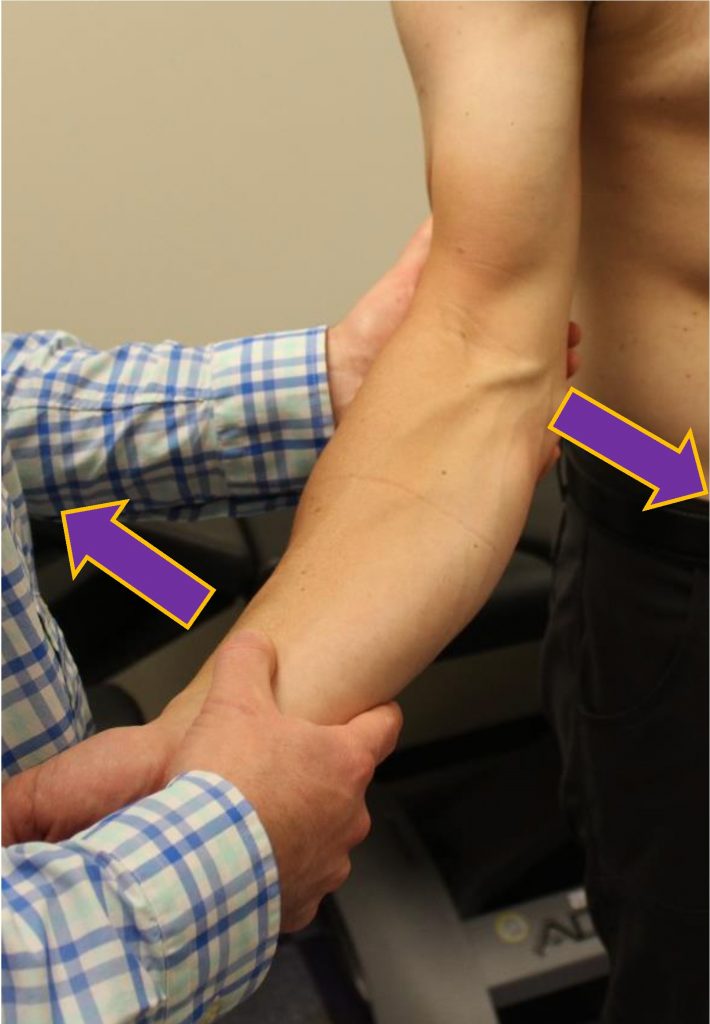 |
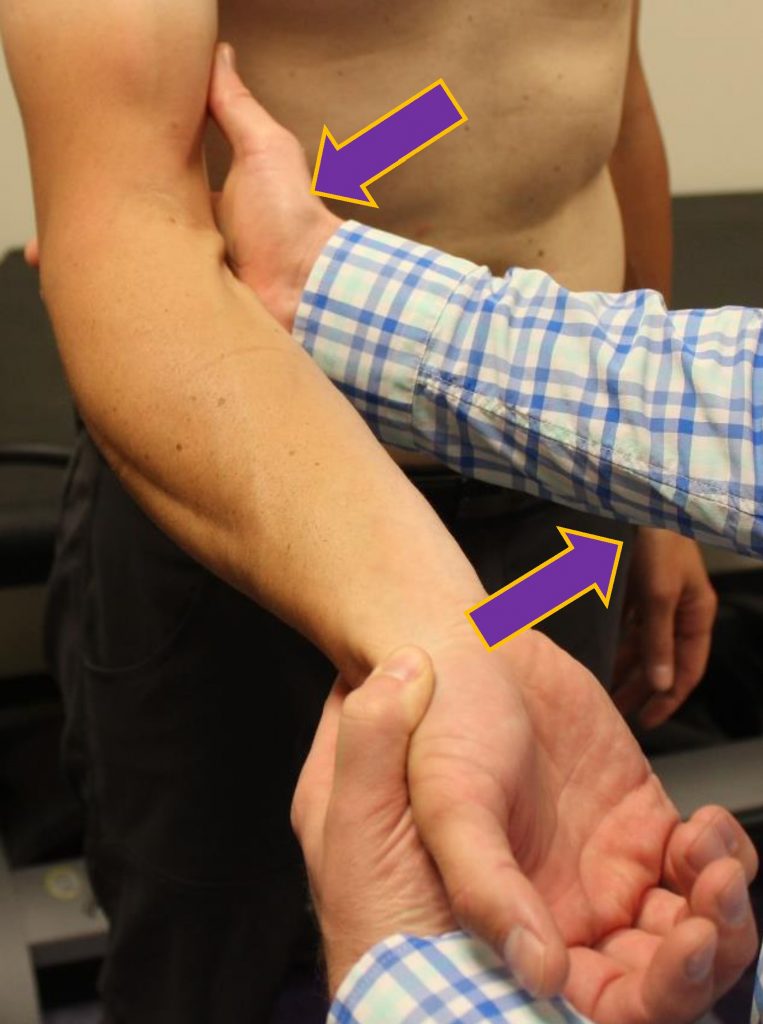 |
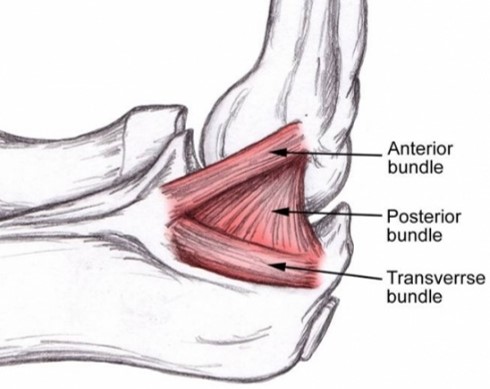 |
Medial and ulnar collateral ligaments of the fingers
- The MCP, DIP and PIP joints all have UCL and RCL
- Stress testing of these is important when evaluating finger pain, particularly when acute
- Evaluation of the UCL of the first MCP (thumb) is an important skill
- This ligament is often injured during hand trauma and can lead to significant morbidity if not treated properly
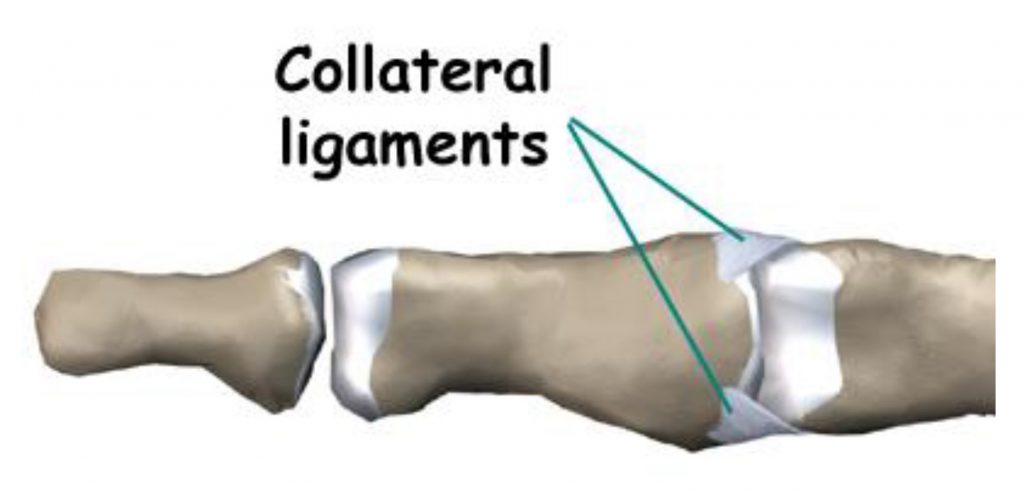 |
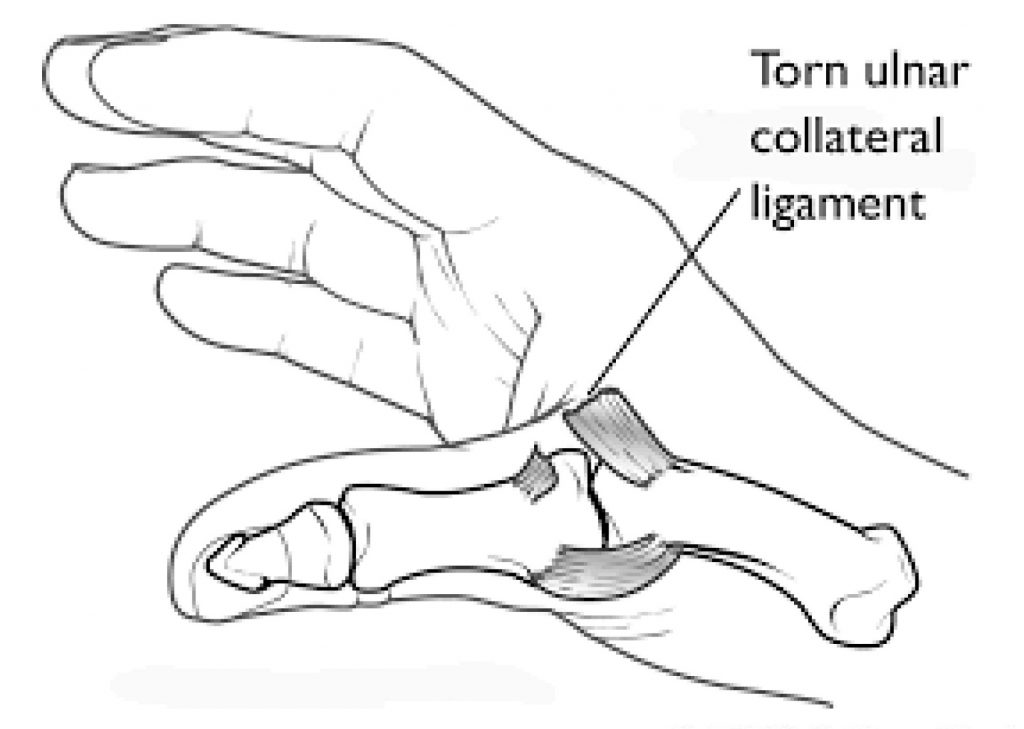 |
Finkelstein’s test for DeQuervain’s tenosynovitis
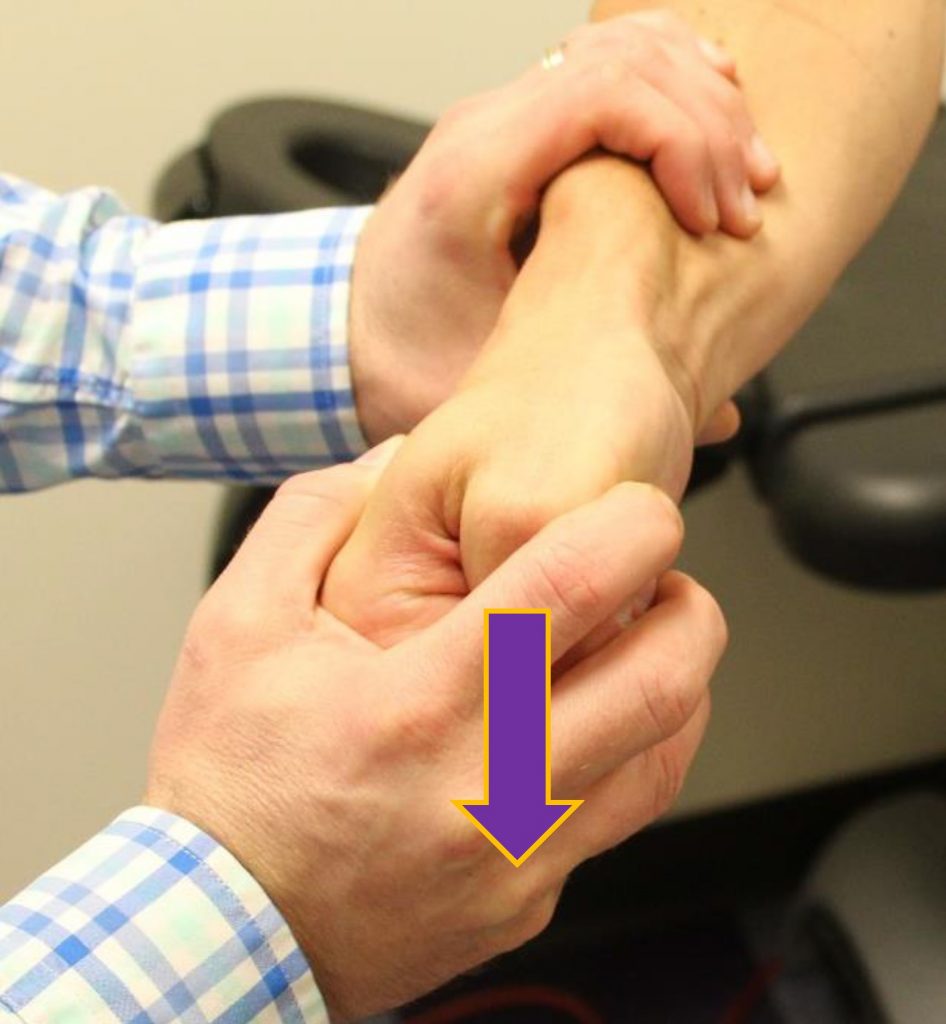 Thumb is held in patient’s palm
Thumb is held in patient’s palm- Examiner moves the hand/wrist into ulnar deviation
- This stresses the first dorsal compartment of the wrist
- Pain with ulnar deviation is considered a positive test
Tests for Carpal Tunnel Syndrome
Phalen’s test
- Hands are pressed together forcing both wrists into flexion and compressing the carpal tunnel
- Pain, numbness, tingling the distribution of the median nerve indicates a positive test for carpal tunnel syndrome
Tinel’s test
- Examiner uses the thumb to compress the carpal tunnel
- An alternative method is to tap the middle finger repeatedly over the carpal tunnel
- Pain, numbness, tingling the distribution of the median nerve indicates a positive test for carpal tunnel syndrome
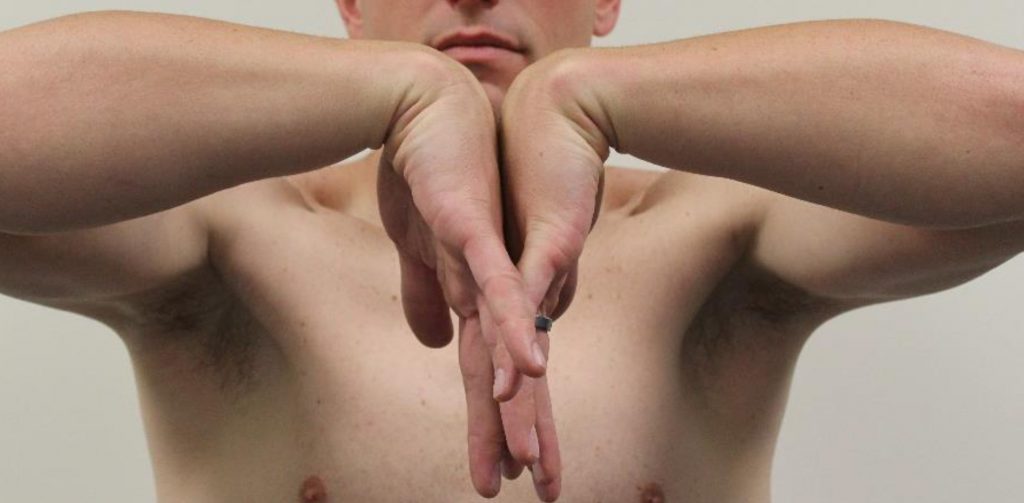 |
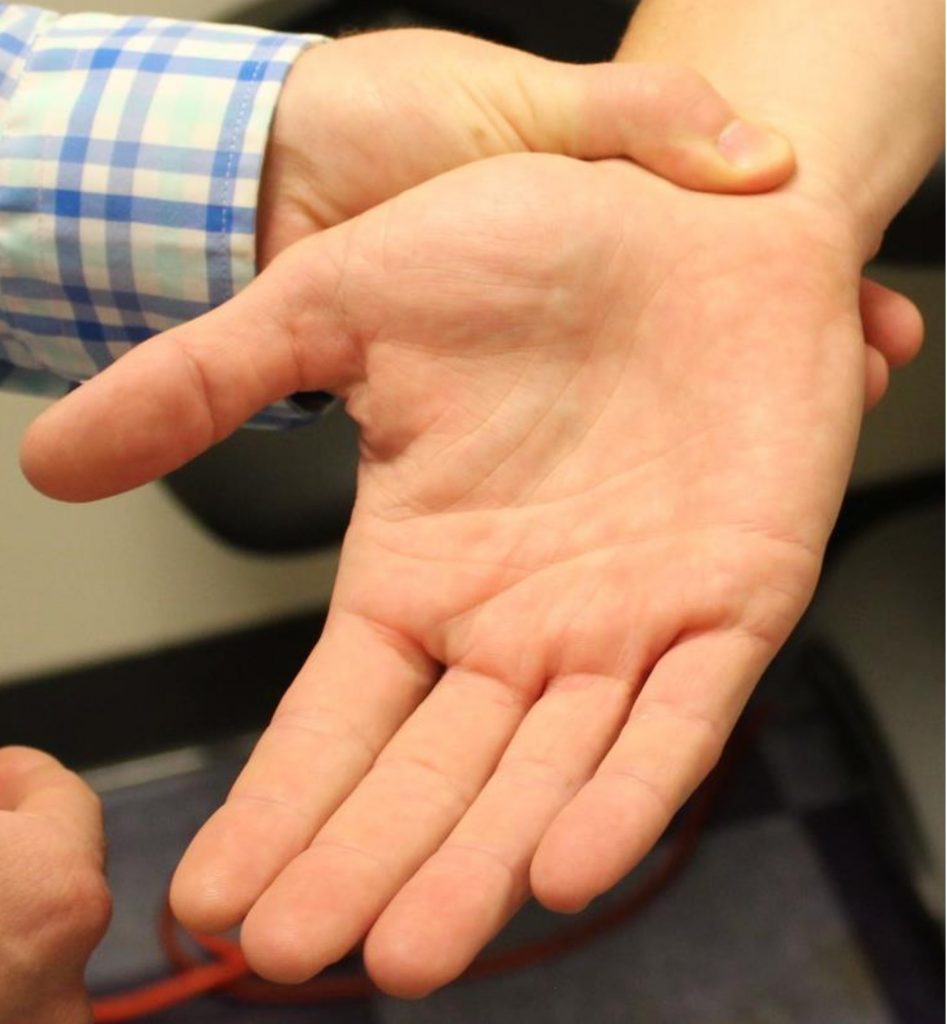 |
